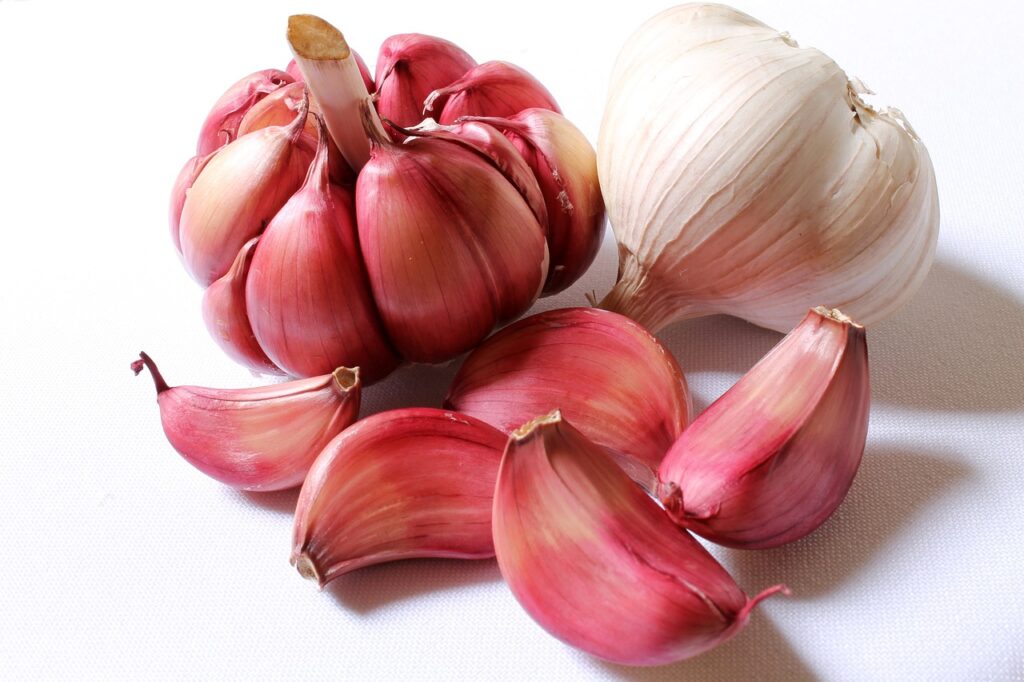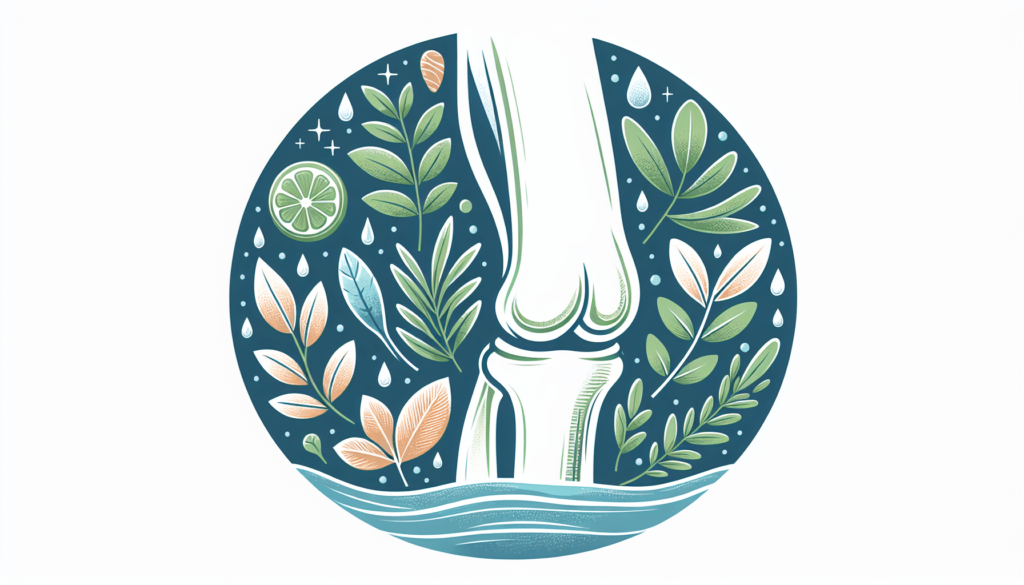Whether you’ve experienced knee pain due to injury, overuse, or age-related conditions, finding relief that doesn’t involve medication or surgery can be a game-changer. In this article, we’ll explore a variety of natural remedies for knee pain relief that may help you find comfort and improve your overall quality of life. From simple lifestyle changes to specific exercises and the use of natural supplements, there’s a range of techniques and routines you can adopt to manage your knee pain. So, let’s dive in and discover some effective methods for finding relief and getting you back on your feet.

1. Overview of Knee Pain
Knee pain is a common issue that can greatly affect your daily life and mobility. It can range from mild discomfort to severe pain, making it difficult to perform even simple tasks. Understanding the symptoms and causes of knee pain is essential to finding the right remedies and relief.
Symptoms of Knee Pain
The symptoms of knee pain can vary depending on the underlying cause. Some common signs to watch out for include:
- Pain or tenderness in the knee joint
- Swelling or stiffness in the knee
- Difficulty in walking or bending the knee
- Clicking or popping sounds
- Weakness or instability in the knee
It’s important to consult with a healthcare professional if you experience persistent knee pain or if the pain is accompanied by other severe symptoms.
Causes of Knee Pain
Knee pain can be caused by various factors, and understanding the underlying cause is crucial for effective treatment. Some common causes of knee pain include:
-
Injuries: Sprains, strains, fractures, and tears in the ligaments, tendons, or muscles surrounding the knee can result in pain.
-
Arthritis: Different types of arthritis, such as osteoarthritis, rheumatoid arthritis, and gout, can lead to knee pain and inflammation.
-
Overuse or repetitive strain: Activities that involve repetitive bending, kneeling, or squatting can put excessive stress on the knee joints and lead to pain.
-
Obesity: Excess weight puts added pressure on the knees, increasing the risk of developing knee pain or exacerbating existing conditions.
-
Aging: As we age, the wear and tear on the knee joint can cause knee pain, particularly in individuals over the age of 50.
2. Importance of Natural Remedies
When it comes to managing knee pain, natural remedies are gaining popularity due to their numerous advantages over medications. These remedies focus on addressing the root cause of the pain and promoting overall well-being. Incorporating natural remedies into your routine can have long-term benefits for knee pain relief.
Advantages of Natural Remedies over Medications
-
Minimized side effects: Natural remedies generally have fewer side effects compared to medications, as they are derived from natural sources and do not contain harsh chemicals.
-
Holistic approach: Natural remedies often target the underlying cause of knee pain and aim to improve overall joint health, rather than simply masking the pain temporarily.
-
Long-term benefits: By incorporating natural remedies into your routine, you are promoting healthier habits and potentially reducing the risk of future knee pain or related conditions.
Benefits of Incorporating Natural Remedies into a Routine
-
Cost-effectiveness: Natural remedies are often more affordable than medications and treatments, allowing you to save money in the long run.
-
Versatility: Natural remedies offer a wide range of options, allowing you to find the remedies that work best for your specific needs and preferences.
-
Empowerment: By taking control of your knee pain management through natural remedies, you are actively participating in your own well-being and promoting a sense of empowerment.
3. Lifestyle Changes for Knee Pain Relief
Making certain modifications to your lifestyle can significantly contribute to knee pain relief. These changes focus on reducing stress on the knee joint and promoting overall joint health.
Weight Management
Maintaining a healthy weight is crucial for relieving knee pain, especially if obesity is a contributing factor. By shedding excess pounds, you can alleviate pressure on the knee joint, reduce inflammation, and improve mobility.
Low-Impact Exercises
Engaging in low-impact exercises can help strengthen the muscles around the knee and improve overall joint stability. Exercises like swimming, cycling, water aerobics, and walking can be gentle on the knees while providing cardiovascular benefits and promoting flexibility.
Proper Rest and Recovery
Giving your knees adequate rest is essential for their recovery and overall well-being. Avoid activities that put excessive strain on the knees and allow for sufficient rest periods between exercise sessions. This will help prevent further damage and allow your knees to heal.
Avoiding Activities that Worsen Knee Pain
Identifying and avoiding activities that exacerbate your knee pain is crucial for managing the condition. High-impact activities such as running, jumping, or intense sports should be avoided or modified to minimize stress on the knees.
4. Physical Therapy Exercises
Physical therapy exercises can play a vital role in reducing knee pain, improving flexibility, and strengthening the surrounding muscles. These exercises are designed to target specific areas and promote overall joint health.
Stretching Exercises
Stretching exercises help improve flexibility and relieve tension in the muscles surrounding the knee joint. Some effective stretches for knee pain relief include:
-
Quadricep stretch: Stand upright, bend one leg at the knee, and reach back to grab your ankle. Pull your ankle towards your buttocks, feeling the stretch in the front of your thigh. Hold for 30 seconds and repeat on the other leg.
-
Hamstring stretch: Sit on the edge of a chair with one leg extended in front of you. Lean forward, reaching for your toes, while keeping your back straight. Hold for 30 seconds and repeat on the other leg.
-
Calf stretch: Stand facing a wall, with one foot slightly in front of the other. Lean forward, placing your hands on the wall for support, and keep the back leg straight while bending the front leg. Hold for 30 seconds and repeat on the other leg.
Strengthening Exercises
Strengthening exercises help stabilize the knee joint and improve overall joint function. Some effective exercises for knee pain relief include:
-
Leg raises: Lie down on your back with one leg extended and the other knee bent. Slowly raise the extended leg towards the ceiling, hold for a few seconds, then lower it back down. Repeat 10-15 times on each leg.
-
Clamshells: Lie on your side with your knees bent and your feet together. Keeping your feet together, lift your top knee away from the bottom knee, opening up like a clamshell. Hold for a few seconds, then lower back down. Repeat 10-15 times on each side.
-
Step-ups: Stand in front of a step or platform. Step one foot up onto the step and push through the heel to lift your body weight onto the step. Step back down and repeat with the other leg. Repeat 10-15 times on each leg.
Low-Impact Cardio Exercises
Low-impact cardio exercises help improve cardiovascular health without putting excessive strain on the knees. Swimming, cycling, and using an elliptical machine are excellent options for getting your heart rate up while minimizing impact on the joints.

5. Hot and Cold Therapy
Hot and cold therapy can provide effective relief for knee pain by reducing inflammation, easing muscle tension, and alleviating discomfort. Alternating between hot and cold treatments can be particularly beneficial.
Using Heat Packs
Applying heat packs to the affected knee can increase blood flow, relax muscles, and relieve pain. You can use a hot water bottle, a heating pad, or take a warm bath to experience the soothing effects of heat therapy.
Applying Ice Packs
Ice packs can help reduce swelling and numb the area, providing temporary pain relief. Wrap a bag of ice or a cold gel pack in a thin towel and apply it to the affected knee for 15-20 minutes at a time, several times a day.
Contrast Therapy
Contrast therapy involves alternating between hot and cold treatments to enhance the therapeutic benefits. Start with a cold treatment for 10 minutes, followed by a hot treatment for 10 minutes. Repeat the sequence 2-3 times, ending with a cold treatment. This can help reduce inflammation and promote healing.
6. Herbal Remedies
Herbal remedies have been used for centuries to alleviate various ailments, including knee pain. Incorporating these natural remedies into your routine can offer relief and support overall joint health.
Turmeric Supplements
Turmeric, with its active component called curcumin, is known for its anti-inflammatory properties. Taking turmeric supplements can help reduce knee pain and inflammation. Consult a healthcare professional for the appropriate dosage and considerations for your specific needs.
Ginger Tea
Ginger is another potent anti-inflammatory herb that can provide relief from knee pain. Brew a cup of ginger tea by steeping fresh ginger in hot water for 10 minutes. Adding a touch of honey or lemon can enhance the flavor and further boost its health benefits.
Capsaicin Cream
Capsaicin, the compound responsible for the spiciness of chili peppers, can be found in topical creams. Applying capsaicin cream to the knee can help relieve pain by blocking pain signals. Follow the instructions on the product label for safe and effective use.
Arnica Gel
Arnica gel, derived from the arnica flower, is often used topically to alleviate pain and reduce inflammation. Apply a thin layer of arnica gel to the affected knee, following the instructions on the packaging. Use caution if you have any allergies to plants in the daisy family.

7. Essential Oils
Essential oils have gained popularity for their natural healing properties. When used correctly, these oils can provide relief and support knee pain management.
Peppermint Oil
Peppermint oil has analgesic and cooling properties that can help soothe knee pain. Dilute a few drops of peppermint oil with a carrier oil such as coconut oil or almond oil, then massage it onto the affected knee for relief.
Lavender Oil
Lavender oil is known for its calming and pain-relieving effects. Mix a few drops of lavender oil with a carrier oil and massage it gently onto the knee. The relaxing aroma can also help reduce stress and promote better sleep.
Rosemary Oil
Rosemary oil has anti-inflammatory properties and is often used to relieve muscle and joint pain. Mix a few drops of rosemary oil with a carrier oil, then massage it onto the knee to reduce pain and inflammation.
8. Dietary Changes
Making certain dietary changes can support knee pain relief by reducing inflammation and providing essential nutrients for joint health.
Anti-Inflammatory Foods
Incorporate more anti-inflammatory foods into your diet, such as fatty fish (salmon, tuna), dark leafy greens, berries, nuts, and seeds. These foods contain antioxidants and omega-3 fatty acids, which can help reduce inflammation and alleviate knee pain.
Omega-3 Fatty Acids
Omega-3 fatty acids, found in fish oil and flaxseed oil, have been shown to have anti-inflammatory properties that can benefit individuals with knee pain. Consult a healthcare professional for the proper dosage and recommended sources of omega-3 fatty acids.
Vitamin D Supplements
Vitamin D plays a crucial role in bone and joint health. Adequate levels of vitamin D can help reduce the risk of developing knee pain and related conditions. Consult with a healthcare professional to determine if vitamin D supplementation is necessary for you.

9. Acupuncture and Acupressure
Traditional Chinese medicine offers acupuncture and acupressure as alternative therapies for knee pain relief. These practices involve stimulating specific points on the body to promote healing and alleviate pain.
Acupuncture Therapy
Acupuncture involves the insertion of fine needles into specific points on the body. This practice is thought to stimulate energy flow and promote healing. Consulting with a licensed acupuncturist can help determine the most effective acupuncture points for knee pain relief.
Acupressure Points for Knee Pain Relief
Acupressure involves applying pressure to specific points on the body rather than using needles. Some acupressure points that may help alleviate knee pain include the GB34 point, located below the kneecap on the outer side of the leg, and the SP10 point, located on the inner side of the leg, just below the kneecap.
10. Mind-Body Techniques
Mind-body techniques can help manage knee pain by reducing stress, promoting relaxation, and improving overall well-being.
Yoga for Knee Pain Relief
Yoga poses that focus on gentle stretching, strengthening, and balance can provide relief for knee pain. Poses such as child’s pose, gentle forward folds, and gentle warrior poses can help improve flexibility and reduce discomfort. It’s important to practice under the guidance of a qualified yoga instructor to ensure proper alignment and avoid further injury.
Meditation and Mindfulness
Engaging in meditation and mindfulness practices can help reduce stress and improve pain management. By focusing on the present moment and cultivating a sense of calm, you can enhance your overall well-being and experience relief from knee pain.
Breathing Exercises
Deep breathing exercises can help promote relaxation, reduce tension, and alleviate knee pain. Practice diaphragmatic breathing by taking slow, deep breaths, allowing your belly to rise as you inhale and fall as you exhale. This can help activate the relaxation response and reduce stress.
Incorporating these natural remedies and techniques into your routine can play a significant role in managing knee pain and promoting overall joint health. Remember to consult with a healthcare professional before starting any new treatment or making significant lifestyle changes. With dedication and consistency, you can find relief and regain control of your daily activities.



